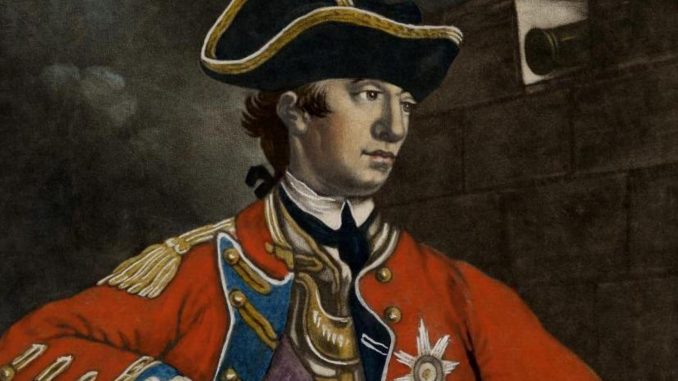
On This Day, October 10th in 1775 General William Howe Named British Commander
Howe again defeated Washington and the Continental Army at the Battle of Brandywine in September 1777, but decided to then launch an attack against Philadelphia instead of coming to the aid of British General John Burgoyne at the Battle of Saratoga as planned. Without the support of Howe and his men, the British army at Saratoga was overwhelmed and forced to surrender to American General Horatio Gates on October 17, 1777. The American victory at the Battle of Saratoga was one of the turning points of the Revolutionary War and General Howe’s decision not to support it proved a major failure in judgment.
Burgoyne placed the blame for the British loss at the Battle of Saratoga squarely on Howe’s shoulders. Within a month, Howe requested that he be relieved of his duty as commander in chief of the British army, and, in the spring of 1778, he was replaced by General Henry Clinton. Upon his return to England, Howe received so much criticism that, in 1779, Parliament was forced to open an investigation into his military conduct in America.
Howe was cleared of any wrongdoing by the investigation and went on to become the governor of Berwick. Upon his brother’s death in 1799, Howe inherited his Irish title and was named a viscount. He also became governor of Plymouth and a privy councilor (advisor to the king) prior to his death on July 12, 1814, at the age of 84.


Be the first to comment